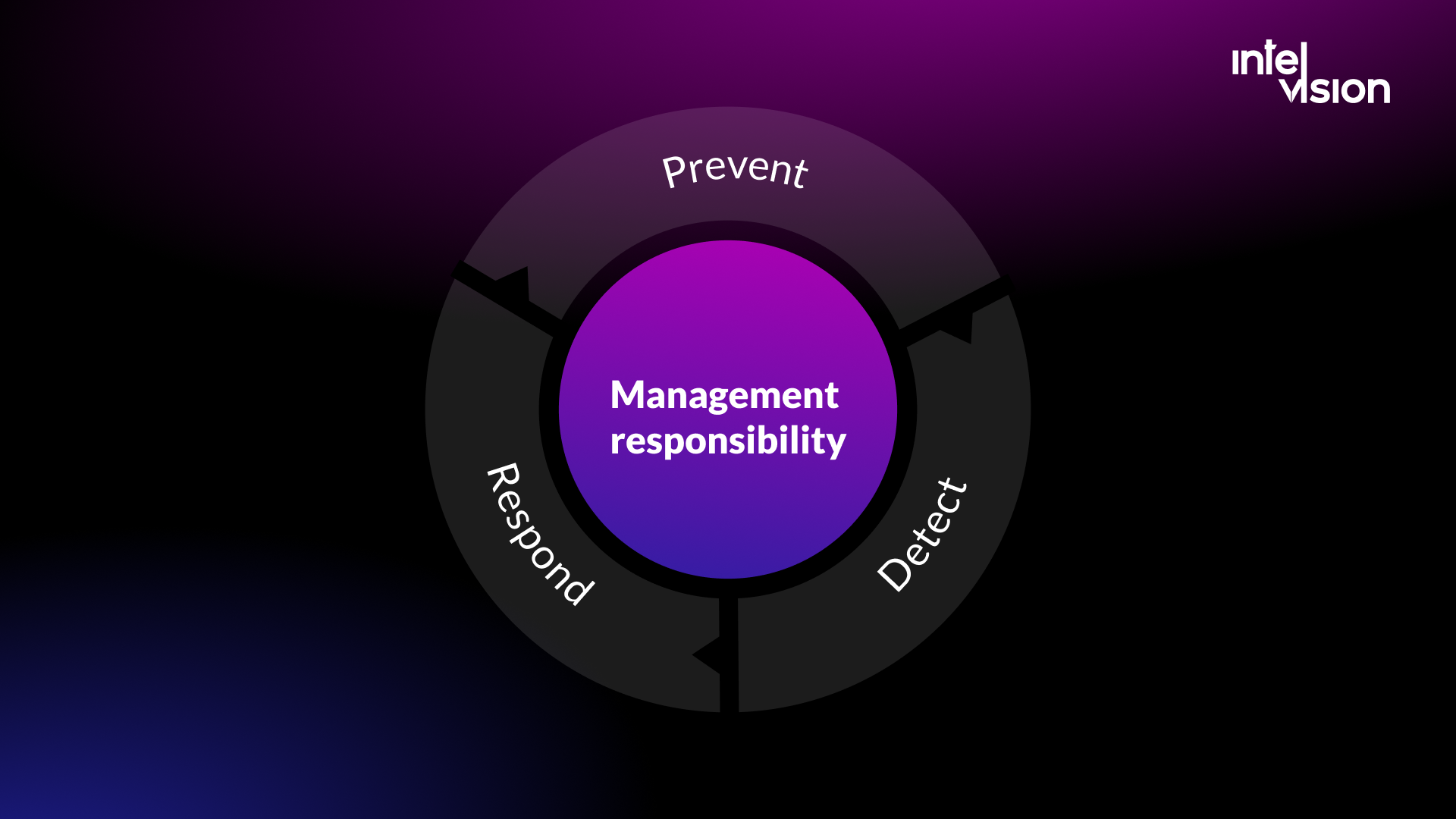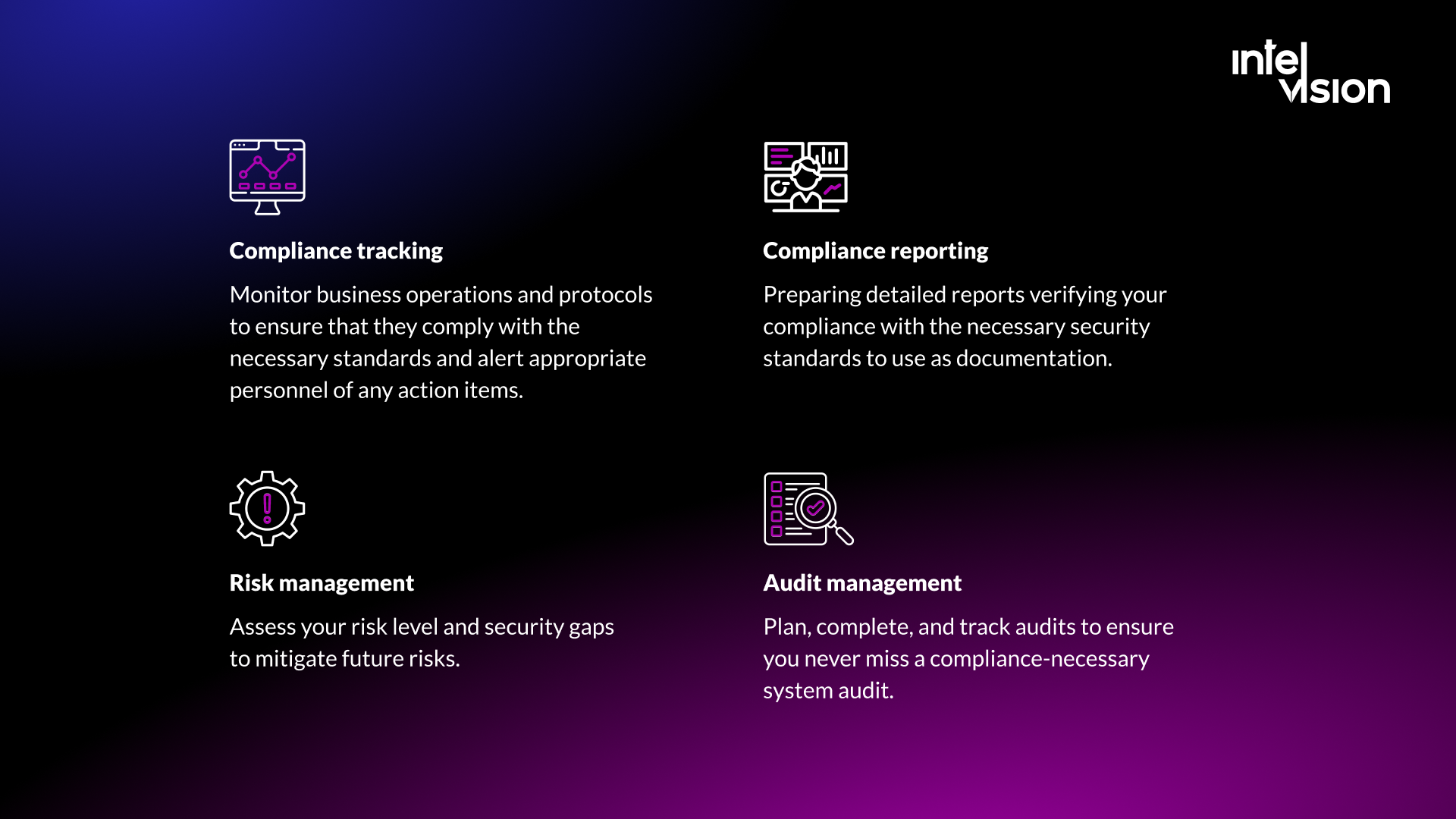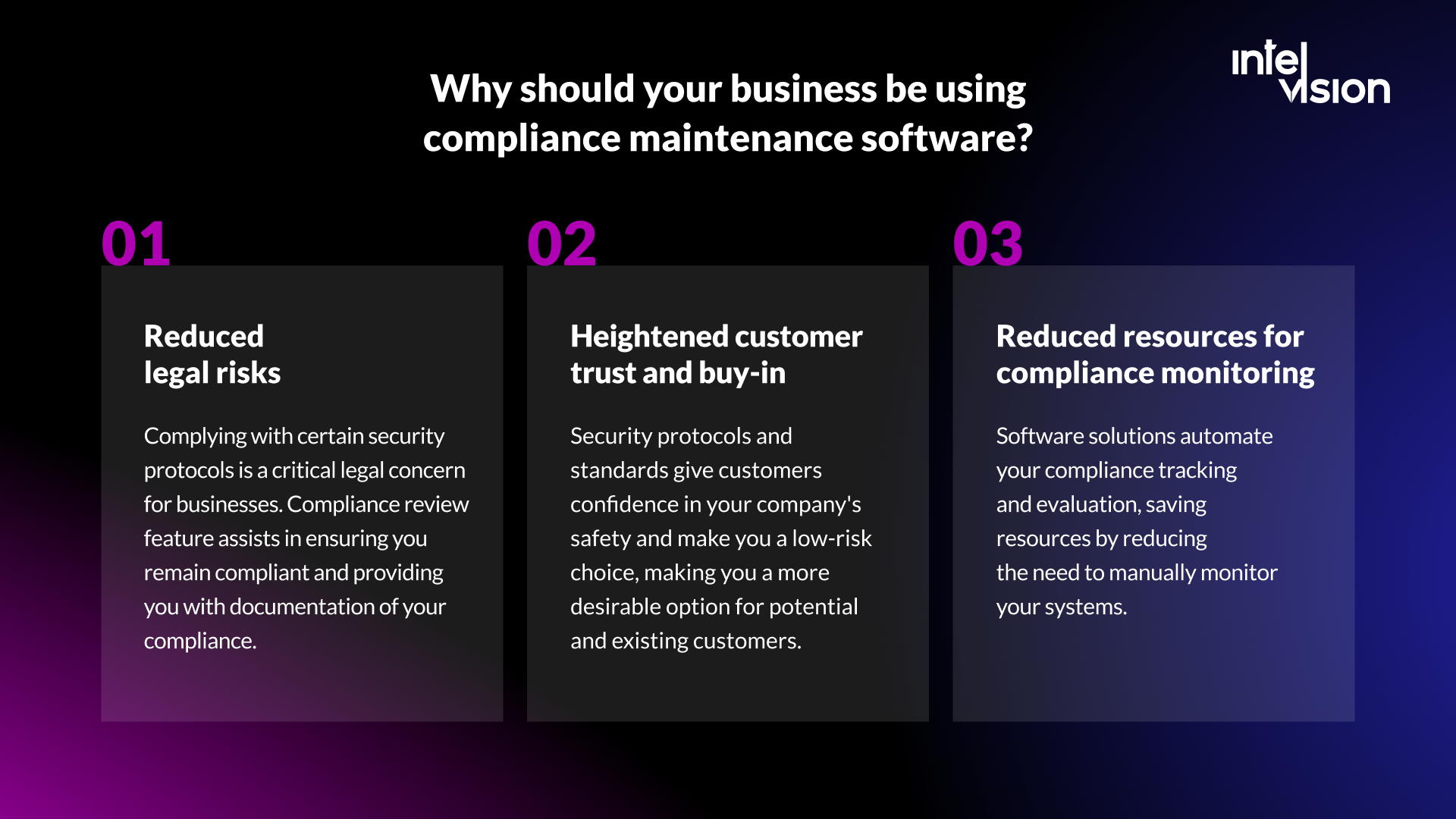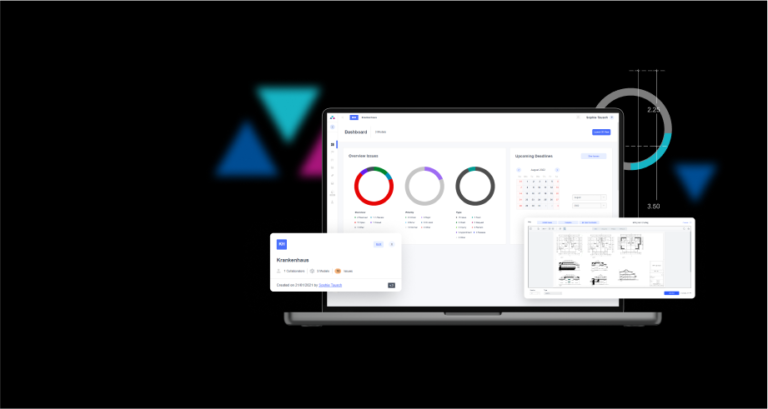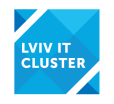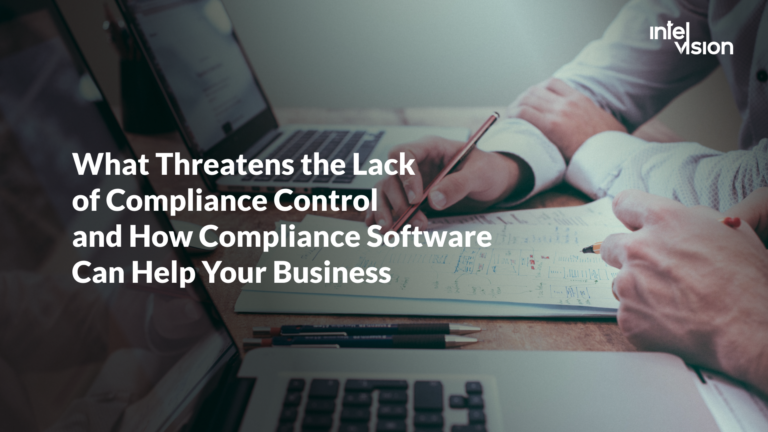
What Threatens the Lack of Compliance Control and How Compliance Software Can Help Your Business
Since 2016, more than 52,000 international regulatory changes have been introduced and since 2008, financial institutions have shelled out $204 billion in fines and infractions. Therefore, any business must strive to meet these requirements because reputation and money are on the line.
As your business grows, there exists a need for more compliance requirements, thus more people to deploy for its implementation in the program cycle. It also means more paperwork, more tasks delegated, and more communication lines open thus more costs for your company. Luckily, compliance software makes life easier to meet regulations head-on.
We’ve put together tips on what is compliance software, how to implement compliance software, what features should it contain as well as how digital solutions can help to save reputation and avoid unnecessary expenses.
What Threatens the Lack of Compliance Control
A business that has “gray areas” in working with partners, business ethics, debts or taxation, etc is weak. It is constantly under attack: if dubious facts and violations come to light, the blow to the reputation can be one from which your business cannot recover. And there are risks of fines, sanctions and broken relations with partners. Often, these problems do not arise out of malicious intent, but due to oversight, mistakes or misunderstanding of the law.
Violation of compliance threatens financial and reputational losses. It also can lead to fines, deprivation of a license, criminal prosecution of the company’s management, and further adverse consequences for the entire enterprise. The exact punishment depends on the specific situation. Possible options:
- a ban on transactions on accounts;
- appointment of on-site inspections;
- administrative fines;
- sanctions against officials;
- revocation of the license;
- recognition of the invalidity of economic transactions.
In addition, the reputation of the company is at risk, as well as its profit including both lost profits as a result of insufficient business development, and direct financial costs.
The concept of “regulatory compliance” has been in business for more than half a century. It all started with a series of corruption scandals in the USA back in the 70s. Avoiding taxes, hiding debts, colluding with competitors to create monopolies—all this came out, made noise and led to high-profile court cases. Then the business world decided: such problems should be anticipated, and reputation should be taken care of.
The first compliance specialists appeared in the US companies already in the 80s of the last century. They made sure that businesses followed business ethics and all laws and industry regulations. Currently, almost all companies in the USA and Europe have a compliance program and departments. These are internal departments, effective compliance management software and risk management functionality that check whether the company is operating legally and ethically.
Compliance Risks Examples
Compliance is a complex concept, which includes many widely used regulations.
Occupational Safety and Health
Health and safety in the workplace are the responsibility of any company. In addition to observing safety compliance, and industry regulations, this also includes the risks of accidents or work-related injuries.
In March 2005, BP Products North America Inc. was issued a $21 million fine following an investigation by the U.S. Department of Labor’s Occupational Safety and Health Administration (OSHA). The investigation was triggered by an explosion and fire at a production facility that resulted in the deaths of 15 and the injury of 170 employees. A re-inspection in 2009 found 760 violations (both new and those that the company committed to fix), for which the company was fined another $87 million.
GDPR
In 2016, the EU government adopted a regulation called the GDPR (General Data Protection Regulation), which obliges personal data operators—anyone who collects personal data of users in any way, even through a form on a landing page—to comply with a large a list of rules for the storage and use of personal information. Failure to comply with the GDPR can lead to multimillion-dollar fines in euros.
Corruption and Fraud
Organizations are generally liable for the corrupt practices of their employees and agents, such as bribery or fraud.
In 2014, BNP Paribas paid a record $8.9 billion fine for violating US sanctions. The bank concealed $30 billion worth of transactions involving clients from Iran, Sudan, and Cuba, countries subject to US sanctions.
Social Responsibility
The risk that your business activities harm your employees or people in the places where you work.
Hugo Boss was fined £1.2m in 2013 after a four-year-old boy died at one of their stores. A mirror weighing 114 kg fell on the boy, an emergency operation could not save him. The company admitted that it failed to secure its store.
Quality
Risk arises when a poor quality product or service is released that does not meet the expected level or violates laws and regulations.
The Vietnamese division of Coca-Cola was fined $16 million in 2016 for producing products of inadequate quality. The company’s Samurai energy drink had lower levels of folic acid and vitamin B9 than the label claimed.
Operating Activities
The risk is that your activities may cause some damage, even if the processes are optimized and adjusted.
ExxonMobil was fined $5 billion. As a result of the crash of the tanker Exxon Valdez off the coast of Alaska, a large-scale oil spill occurred, spilling 11 million gallons (42 million liters) of oil into the sea, polluting more than 2 thousand km of coastline. In the end, the company managed to reduce the amount of the fine to $500 million.
The Siemens Compliance System: Only Clean Business is Siemens Business
After the corruption scandal of 2008, Siemens formed rules that should minimize the likelihood of a repeat of the situation. The slogan: “Only clean business is Siemens business” emphasizes the lack of tolerance for corruption and violations of the rules of competition. The company has developed internal documents that are valid for all divisions and suppliers. The company publishes annual reports on its official website. You can also report violations there.
Nowadays, the Siemens compliance system comprises a comprehensive system of measures to ensure their business is always carried out in full accordance with the law as well as with their internal principles and rules. Its Compliance System is divided into three levels of action: prevent, detect and respond.
Siemens shows zero tolerance toward corruption, violations of the principles of fair competition, and other breaches of the law—and where these do occur, the team takes swift action. In addition to combating corruption and competition and export-control violations, the Compliance Department also protects the company against fraud and money laundering as well as safeguards personal data and human rights.
What is Compliance Software
Compliance software describes digital tools to monitor a company’s internal systems and controls, to comply with required standards and regulations. Compliance software can streamline the process of becoming and staying compliant with required regulations—and its continuous compliance monitoring can support the improvement of an organization’s overall security posture.
What Features Does Compliance Software Include
Every compliance management software solution is unique in its specialty and features.However, there are certain features you can expect to see in most of these tools and apps. They include:
- Compliance tracking—Monitor business operations and protocols to ensure that they comply with the necessary standards and alert appropriate personnel of any action items.
- Audit management—Plan, complete, and track audits to ensure you never miss a compliance-necessary system audit.
- Risk management—Assess your risk level and security gaps to mitigate future risks.
- Compliance reporting—Preparing detailed reports verifying your compliance with the necessary security standards to use as documentation.
Business Benefits of Using Compliance Software
Why should your business be using compliance maintenance software?
- Reduced legal risks—Complying with certain security protocols is a critical legal concern for businesses. Compliance review feature assists in ensuring you remain compliant and providing you with documentation of your compliance.
- Heightened customer trust and buy-in—Security protocols and standards give customers confidence in your company’s safety and make you a low-risk choice, making you a more desirable option for potential and existing customers.
- Reduced resources for compliance monitoring—Software solutions automate your compliance tracking and evaluation, saving resources by reducing the need to manually monitor your systems.
What Are Factors to Consider when Buying Compliance Software?
Let’s take a look at some factors to consider when selecting compliance management software.
Compliance requirements
What regulations, policies, and legislative and financial frameworks do you follow?
Data security
A mature security framework ensures that client expectations and data integrity are met. After all, loss and compromise of data will cost you your customers, and possibly, your entire business.
Software Compliancy & Integration
The compliance management software must be able to integrate fully with many trade systems, a CRM system, etc. Also, the software you choose must be able to operate well across various silos of your company.
Custom Compliance Software Development from Intelvision
Create a unique competitive advantage with tailor-made compliance platforms. Explore the full-cycle custom software development services from Intelvision. We can help you to:
- Create a Clear Product Vision. We will assess your application ideas, prioritize features, define product scope and vision, choose the perfect architecture, and develop a top-notch software solution.
- Optimize Development Costs. Our team creates a development roadmap and eliminates software issues to ensure fast time-to-market with maximum ROI.
- Fix & Modernize Legacy Software. If you experience poor backend functionality or struggle with obsolete technologies that hamper software performance or integration capabilities, Intelvision will help to re-engineer, upgrade, or modernize your compliance platforms.
- Ensure Robust Security & Compliance. By utilizing a secure development lifecycle and ‘Data Protection by Design’ approaches we ensure ultimate software safety and full compliance with GDPR, ISO 27001, and other regulations.









